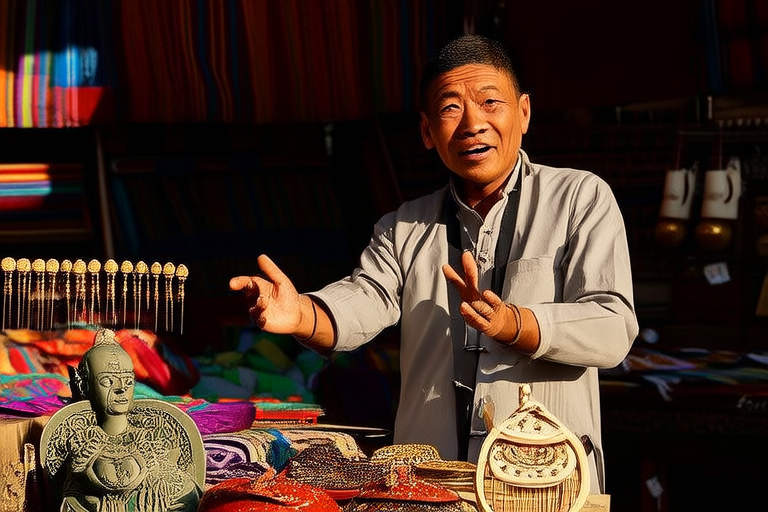Cultural Immersion: Unforgettable Experiences from Local Experts

“`html
Cultural Immersion: Unforgettable Experiences from Local Experts
Introduction
Cultural immersion is the practice of fully immersing oneself in the customs, traditions, and daily life of a foreign culture. This approach to travel goes beyond visiting tourist attractions; it involves engaging deeply with the local community to gain a more profound understanding of the destination. Travelers who embrace cultural immersion often return home with a richer, more nuanced perspective on the places they’ve visited.
Engaging with local experts is essential for a deeper, more meaningful travel experience. These individuals possess an intimate knowledge of their culture, history, and traditions that cannot be found in guidebooks or mainstream tourism materials. By learning directly from locals, travelers can uncover hidden gems, participate in authentic rituals, and develop a genuine connection with the people and places they visit.
Why Local Experts Matter
Local experts offer unique insights into their culture, history, and traditions that are often overlooked by conventional tourism. They can share stories passed down through generations, explain complex social norms, and provide context for seemingly simple practices. For instance, a local guide might reveal the symbolism behind a particular dance or the significance of certain foods in religious ceremonies.
Learning directly from locals offers several advantages over relying solely on guidebooks or mainstream tourism. Firstly, it allows for a more personalized experience tailored to individual interests and preferences. Secondly, it promotes cross-cultural understanding and empathy, which are crucial for fostering global harmony. Lastly, it supports local economies by providing income opportunities for community members while preserving cultural heritage.
Examples of Cultural Immersion
Asia: Cooking Classes and Tea Ceremonies
In Japan, participating in a tea ceremony provides insight into centuries-old traditions surrounding hospitality and mindfulness. Similarly, taking a cooking class in Thailand teaches travelers about the flavors and techniques integral to Southeast Asian cuisine. Both activities allow visitors to engage with local experts who can share valuable information about ingredients, preparation methods, and cultural significance.
Europe: Traditional Craft Workshops and Historical Tours
In Italy, attending a pottery workshop introduces participants to the art of ceramics and its role in Italian culture. Meanwhile, guided historical tours led by local historians in countries like Greece or Spain offer fascinating perspectives on ancient civilizations and their influence on modern society.
Africa: Participating in Local Festivals
Attending a harvest festival in Ghana or celebrating Ramadan in Morocco gives travelers a firsthand look at African celebrations and their importance within the community. These events showcase music, dance, food, and other aspects of African culture.
Latin America: Music Lessons and Dance Workshops
Joining a samba lesson in Brazil or salsa dancing in Colombia allows visitors to experience vibrant musical traditions. Additionally, visiting indigenous communities in Peru or Mexico offers opportunities to learn about ancient civilizations and their descendants’ lives today.
Building Meaningful Connections
Interacting with local experts fosters personal connections and mutual respect between travelers and hosts. These relationships can lead to lifelong friendships and a greater appreciation for diversity. Moreover, they contribute positively to sustainable tourism by encouraging responsible travel practices that benefit both visitors and residents alike.
The impact of these connections extends beyond the duration of a trip. Many travelers find that their experiences abroad have influenced their worldview and inspired them to become more engaged citizens back home. By sharing stories and photos from their adventures, travelers help raise awareness about different cultures and promote cross-cultural dialogue.
Overcoming Challenges
Travelers may encounter various challenges when attempting to immerse themselves in a new culture, including language barriers, cultural misunderstandings, and logistical difficulties. However, there are several strategies for overcoming these obstacles:
- Language Learning: Enroll in language courses before departure or download translation apps to facilitate communication.
- Cultural Sensitivity: Research local customs and etiquette prior to arrival to avoid unintentional offenses.
- Logistical Planning: Book accommodations and transportation through reputable sources to ensure safety and comfort.
By preparing adequately and remaining open-minded, travelers can maximize the benefits of cultural immersion despite potential challenges.
Conclusion
Cultural immersion offers an unparalleled opportunity for travelers to deepen their understanding of different cultures through direct interaction with local experts. By engaging in authentic experiences such as cooking classes, traditional craft workshops, guided tours, and participation in local festivals, visitors can gain valuable insights into the customs, traditions, and daily life of various destinations worldwide.
We encourage readers to seek out authentic cultural experiences during their travels. Doing so not only enriches one’s own journey but also contributes positively to the communities being explored. Let us strive to build bridges rather than walls, fostering mutual respect and appreciation across borders.
“`